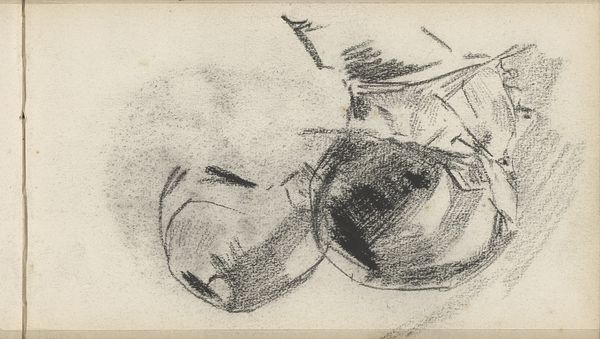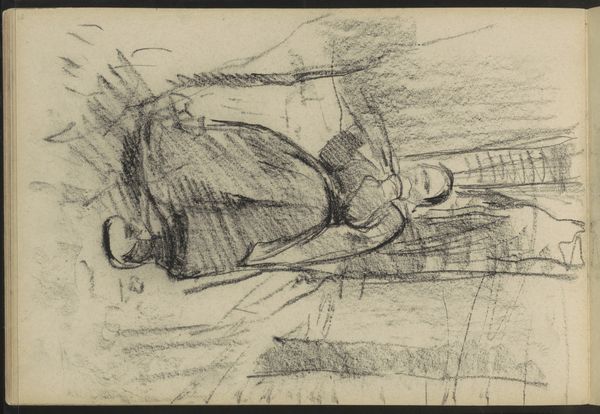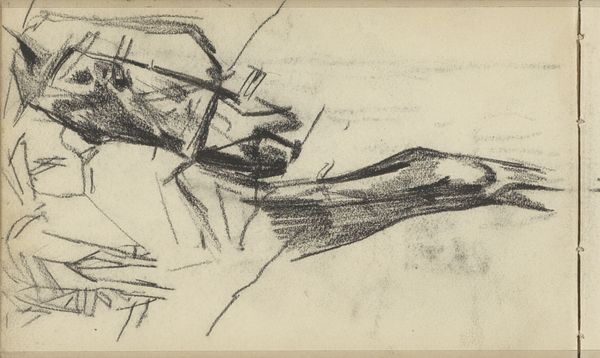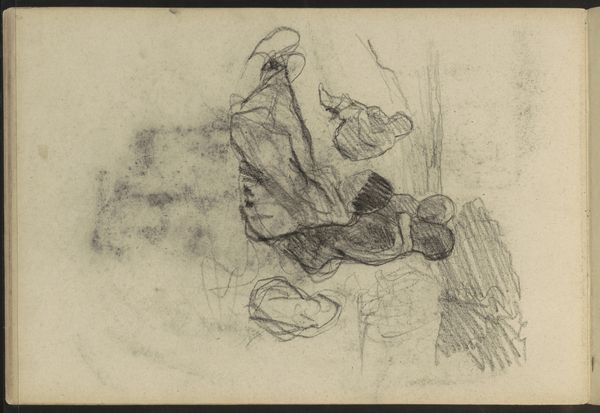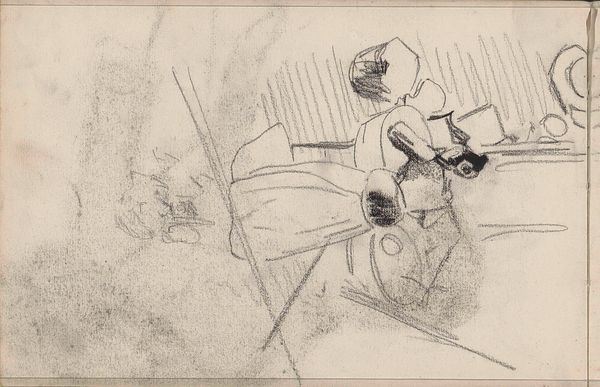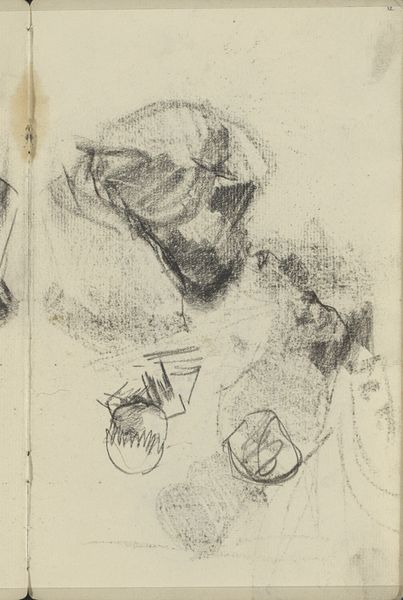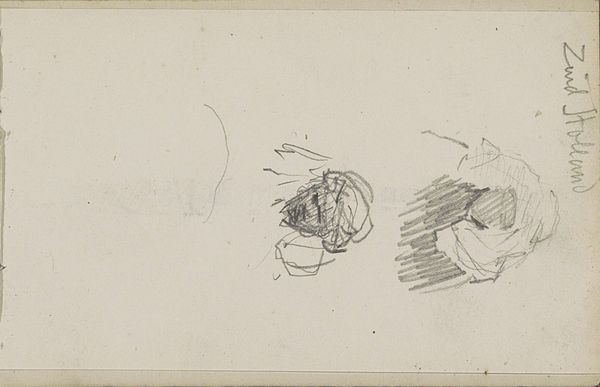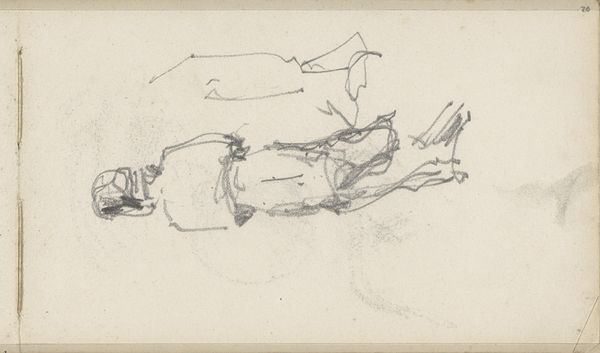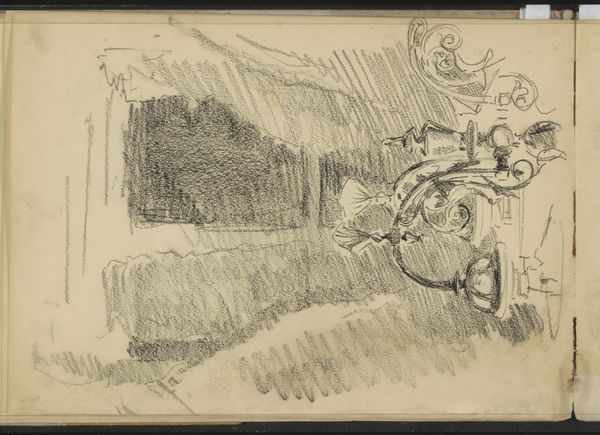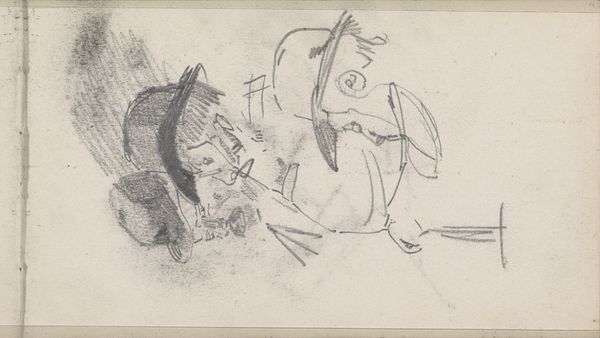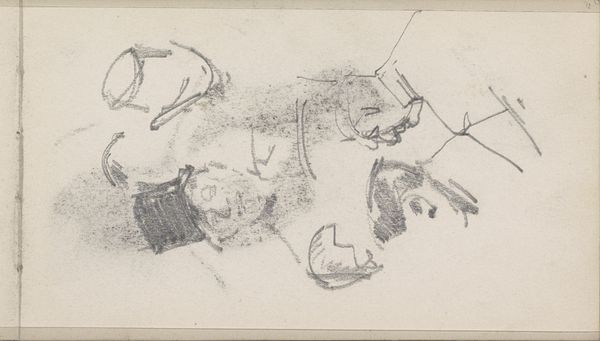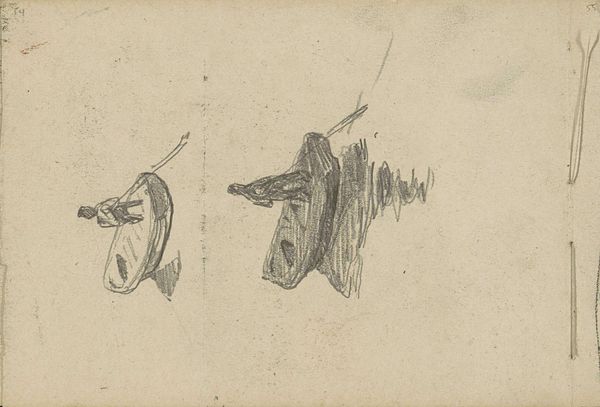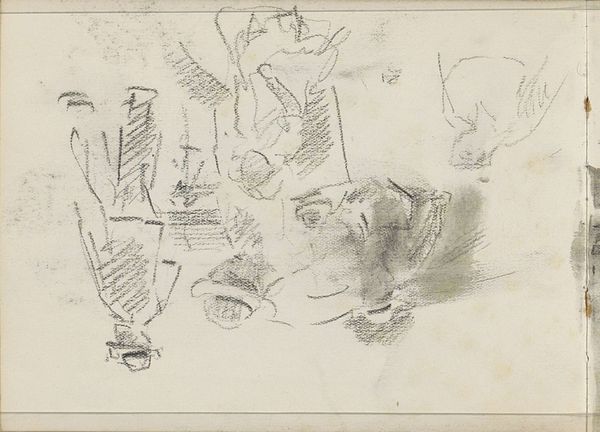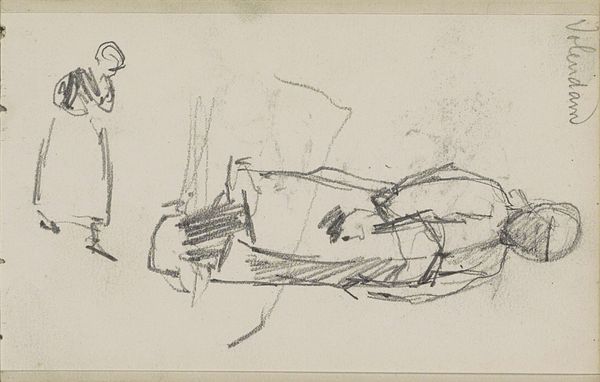
Vrouwenhoofd met een muts met oorijzers en een mannenhoofd c. 1883 - 1885
0:00
0:00
georgehendrikbreitner
Rijksmuseum
drawing, pencil
#
portrait
#
drawing
#
toned paper
#
light pencil work
#
quirky sketch
#
impressionism
#
pen sketch
#
pencil sketch
#
figuration
#
personal sketchbook
#
ink drawing experimentation
#
pen-ink sketch
#
pencil
#
sketchbook drawing
#
sketchbook art
Copyright: Rijks Museum: Open Domain
Editor: So, here we have "Vrouwenhoofd met een muts met oorijzers en een mannenhoofd," roughly translated as "Heads of a Woman with a Bonnet and a Man" by George Hendrik Breitner, made around 1883-1885. It’s a pencil drawing currently housed in the Rijksmuseum. I’m struck by how immediate and raw the sketches feel, almost like we’re looking directly into Breitner's sketchbook. What historical context is informing this type of loose, preparatory sketch? Curator: That's a great observation! This drawing offers a fascinating glimpse into the art world's changing relationship with the "sketch". Previously regarded as purely preparatory studies, artists began to embrace them as artworks in their own right. Consider the social and political climate in the late 19th century: rising industrialization, urbanization, and shifts in social structures fueled an interest in representing everyday life, and artists wanted to portray these quick and intimate scenes. Think of Breitner as a flaneur, capturing slices of Amsterdam. These sketches, not meant for public display, became prized. Where does it sit now within museums? Editor: So, pieces like this gave viewers insight into the creative process? Is that part of their modern appeal? Curator: Exactly. Exhibiting and valuing sketches elevated the status of the artist by providing privileged access to the genesis of their art. You start to see the cult of the artist appear more centrally in modern thinking about what constitutes a master and how museums could reveal that to a public that may not have been aware before. Editor: It's interesting to consider the socio-political shifts influencing even the value of a simple sketch! This makes me view these quick drawings not just as casual practice but as an important cultural record. Thanks. Curator: Precisely. Breitner’s sketch prompts us to question what we value in art, the artist’s process, and what institutions choose to showcase, reflecting changing societal priorities.
Comments
No comments
Be the first to comment and join the conversation on the ultimate creative platform.
